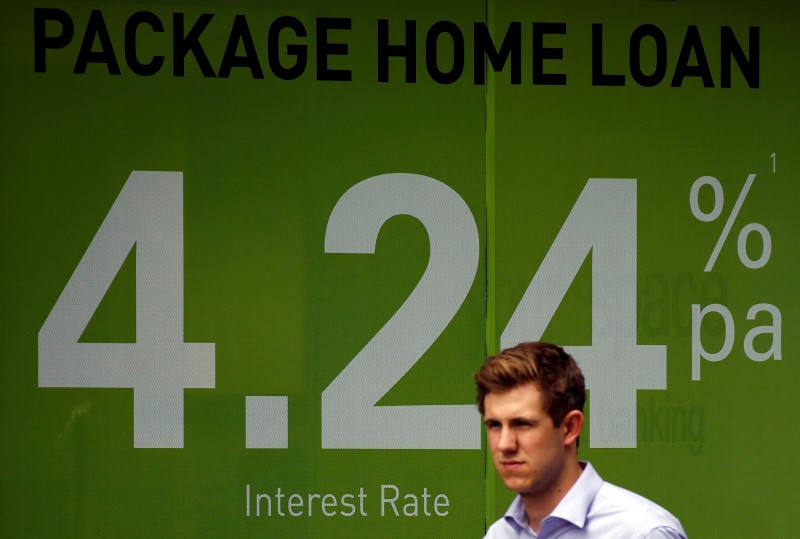SYDNEY, Dec 1 (Reuters) - Australian home prices rose for the 11th straight month in November and the annual pace of growth quickened noticeably, a red flag to policy makers concerned about the risk of a debt-fuelled bubble.
Property consultant CoreLogic said its index of home prices for the combined capital cities rose 0.2 percent in November, a tempering from October's 0.5 percent gain.
However, annual growth in prices accelerated to 9.3 percent, from 7.5 percent in October, taking it back toward last year's lofty peaks atop 11 percent.
That will be a worry for the Reserve Bank of Australia (RBA) which had been hoping the market would cool after regulators slapped banks with tighter lending rules.
After cutting interest rates to a record low of 1.5 percent in August, the central bank has sounded reluctant to ease further in part because it could encourage more borrowing by already heavily indebted Australian households.
The RBA holds its last policy meeting of the year next week and is considered almost certain to stay on hold. Financial markets 0#YIB; imply only a small chance of another easing next year as well.
The CoreLogic data showed home prices in Sydney kept up their blistering run with a rise of 0.8 percent in November, from October. The annual pace of growth also spurted to 13.1 percent, from 10.6 percent.
Melbourne saw a rare monthly decline of 1.5 percent in November. Yet annual growth still picked up smartly to 11.3 percent, taking Australia's two largest cities into double-figure territory.
Price growth was much more mixed elsewhere, with Brisbane seeing an annual rise of 3.9 percent and Adelaide 4.7 percent, but Perth suffering a fall of 3.4 percent.
The market outside the major cities was also far more subdued, with prices up just 1.4 percent in the year to November.
CoreLogic's head of research, Tim Lawless, noted the current national growth cycle had now run for four-and-a-half years giving a combined capital city price rise of 42.2 percent.
Sydney boasted the biggest gain of 67.3 percent, followed by Melbourne with 46.3 percent.
The inexorable price rise in the major cities has taken homes out of the reach of many first-time buyers and become a political hot potato.
The conservative government of Malcolm Turnbull has blamed a lack of supply for the problem, while the opposition Labor Party has pointed the finger at favourable tax treatment for property investment.
